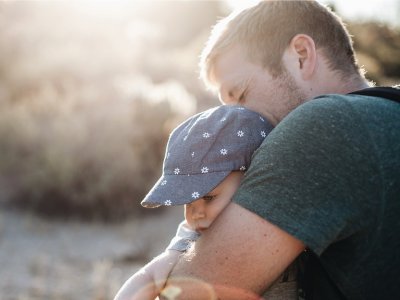
THE GOAL OF EDUCATION
The friends of Jesus provided a textbook example of how not to be welcoming of children. Whereas all kinds of adults found their way to Jesus – up a tree, through the roof, squeezing through crowds – they decided to act as bouncers at one point when the pre-school rocked up. The grown up business of saving Israel was disrupted by incontinent little people with runny noses and whiny voices and so they told parents to take the children away again.
In Matthew 18, a child is brought into their midst as a symbol of how to receive the kingdom of God. We read this in a typically adult-centric way: as a story about how to be a real adult. But it is also a story about a child being brought into the very heart of power and it becoming a place where they feel at home. It’s said that familiarity breeds contempt, but it often does something very different: it breeds confidence. A child feeling comfortable near the heart of power will grow up feeling they belong there. This isn’t necessarily good, of course: a privileged child with a privileged upbringing may never understand what it is like to lack those privileges. Or to understand properly how the personal contacts of a parent often gives them a head start in their career.
In bringing one child to stand next to him, Jesus was inviting all children to do this. That is the beauty of the Christian faith: it is accessible to all and we stand on an equal footing. No one is more important than another before God.
And having done so, he said: ‘unless you change and become like little children, you will never enter the kingdom of heaven’. Though some people have taken this saying as a sign that to follow Christ means a person must surrender their capacity to reason, to become anti-intellectual, it actually encourages something different. Children are curious, not cynical; spontaneous, not calculating; and playful, not pompous.
Childlikeness is a mark of life in all its fulness, but childishness isn’t. There is a way of being a child as an adult which is harmful to those around us. Young children are naturally self-centred and the adult world’s duty is to help them see there are other stars in the sky too. Some adults, including, indeed often, the high functioning never grow up this way and remain perpetually a child, throwing tantrums and pushing others around. For all the education we seek to offer children, the power of imitation is stronger and should be at the heart of our teaching.
To enable generations of young people to learn to exercise well the power they will have in their different lives, we should teach and encourage three things, among others – values that I know lie at the heart of what it means to be a church school.
The first is to seek wisdom and not just knowledge. There’s a saying that knowledge is appreciating a tomato is a fruit and wisdom is knowing not to put it in a fruit salad. But that’s not so much wisdom as life experience. CS Lewis said he believed wisdom is being able to distinguish the important from the trivial. And he said that a long time before we arrived at the place today where we generate as much information every ten minutes as the first ten thousand generations of the human race combined. I think wisdom is being able to make choices and decisions in the light of God’s character and not being paralysed by information overload.
The second value is to offer hope, not optimism. Optimism is projecting the present into the future – a kind of crossed fingers, glass half full approach to life. In contrast, hope is the future reaching into the present through the resurrection of Jesus Christ and the sight of a renewed creation.
The third is to encourage community, not individualism. Community is a wonderful word, but it is overused today. It is rooted in the Trinity, who is perfect community, and it points to a strongly relational view of human life. We may have different roles, but we deserve equal respect. We are made in the image of God. We can miss the significance of what that meant when it first emerged in Jewish thinking. In the ancient world, only kings bore the image of God. It was a radical, democratising step to see all human beings as bearing the image of God. And it speaks deeply into our understanding of the value of education and the divine potential of every child.
School is about so much more than producing people who can work more efficiently in a market economy where ever greater GDP is the goal. Our vision should be for the common good, where the quality of our human relationships is the measure of a good society. One that echoes the golden rule: that we should love our neighbours as ourselves. We lose interest in things eventually; we don’t lose interest in the relationships that matter to us.
We prepare young people for the adult world by helping them turn their gifts into skills that enrich their communities. This finds its template in 1 Corinthians 12, where St Paul says each member of the Church is like a part of the human body which only come alive when they are joined with others. This offers a different model to that hyper individualistic, competitive view of human life where market values and language leak beyond their remit into everyday life.
And we educate one generation so that it can do the same for the next generation, only better still. There is such a thing as a generational covenant. This is presently focussed on tackling climate change, but it has a wider significance and a biblical foundation. It’s said that decision makers should always imagine a person from the future in the room, to ensure they have an eye on the needs of the next generation. Rather like Jesus, when he brought that child right into the centre of things one day, and changed our view of power forever.
POPULAR ARTICLES

God In The Cow Shed
2020 has been dominated by the C word. Not that C word. I mean conspiracy theory involve space. Some people believe the

Viral With The Holy Spirit
Since the tech revolution, insurgent new start-ups have enjoyed using the word ‘disruption’

Long Lost family
Some types of storytelling mess with your brain. Intentionally. Like one of those novels where you assume

Valuing Age
Lots of work is being done round unconscious bias in society, especially around gender and ethnicity

